Reflections on the Model NATO event
At the end of their BA International Relations degree, several of our students took part in the Model NATO event organised by the British International Studies Association – and won the 2022 Cecil Angel Cup. Below, students reflect on their involvement.
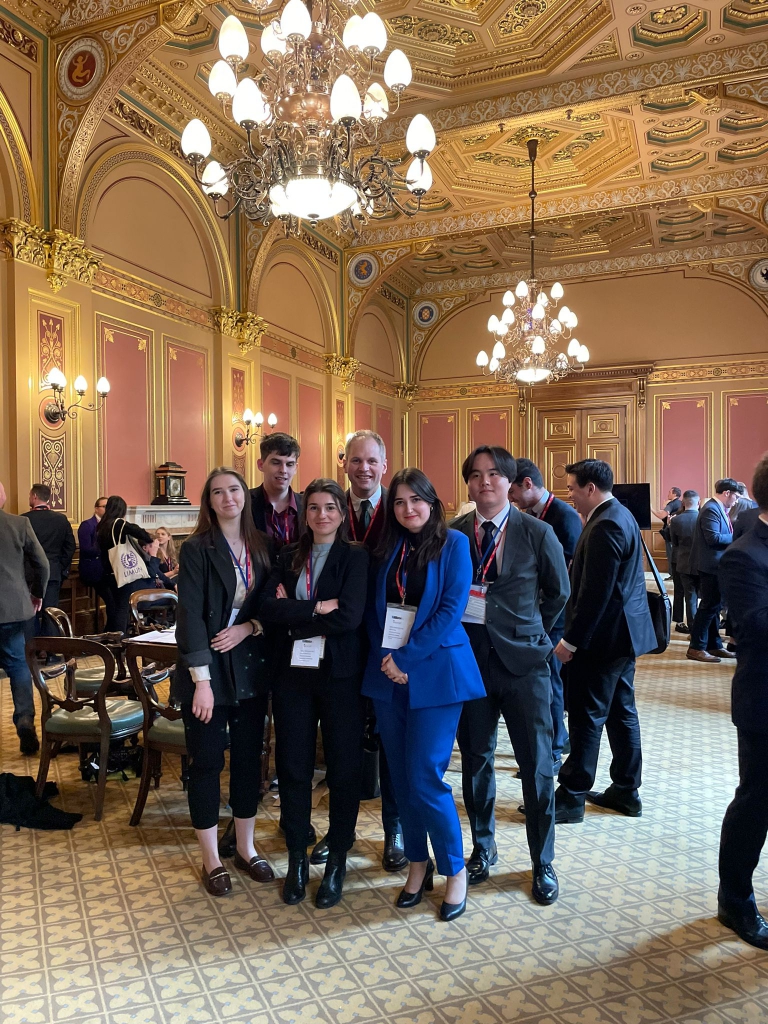
Catarina Dinis: During the last year of my Bachelor’s degree in International Relations, I had the privilege to represent Coventry University at the ModelNATO organized by the British International Studies Association that took place in the Foreign, Commonwealth and Development Office. By representing the role of Luxembourg’s Permanent Representative to the North Atlantic Council under the scenario of a natural catastrophe affecting several members of the Alliance, I had the opportunity to negotiate with colleagues from other universities all over the UK, a package of measures and a Joint Statement on the fictional crisis. It was an unique experience that brought me great insights on negotiation and resource allocation as well as it allowed me to put to use my skills and knowledge on NATO’s internal dynamics and mechanisms. After four years of studying the theoretical dynamics of IR, it is very rewarding to be able to put my knowledge into practice in such an environment.
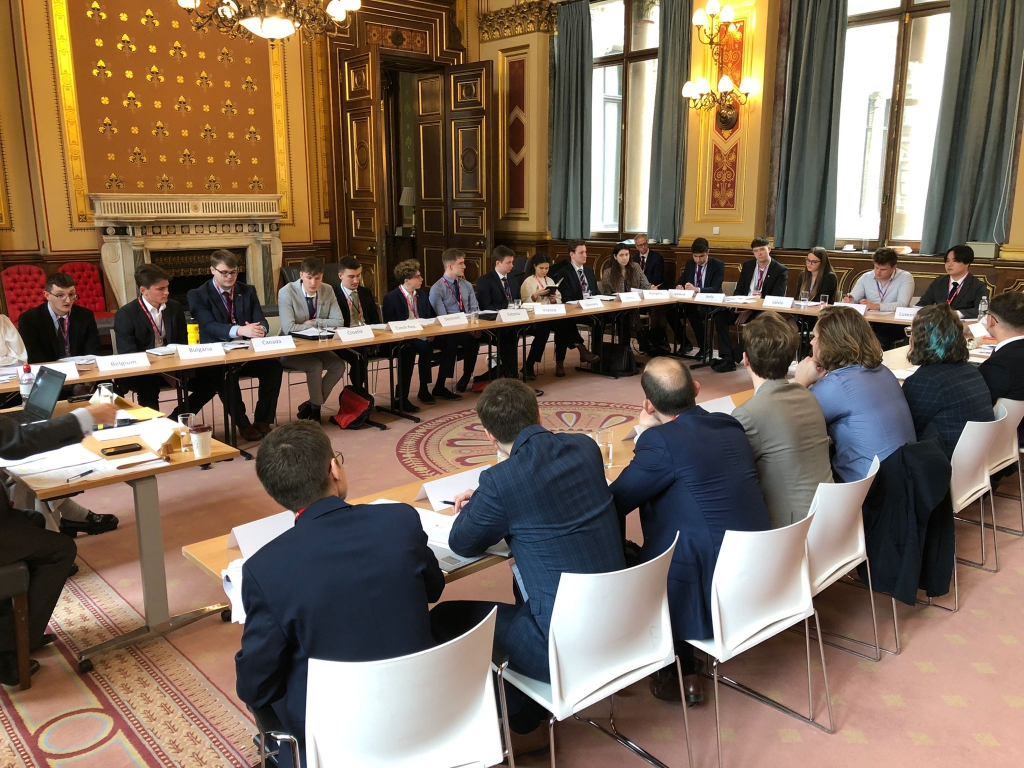
Naota Lee: On 11 March 2022, I had the honour of participating in the Model NATO event held at the Foreign, Commonwealth, and Development Office (FCDO) in the heart of London, with the support of Dr Felix Rösch and the Faculty of Art and Humanities at Coventry University. The event was organised in conjunction with FCDO and the British International Studies Association (BISA). 15 universities from the United Kingdom, including Coventry University, participated. The Model NATO recreated the decision-making process of NATO to realistically resolve emergency situations. For the event, each group of three university students was allocated one of the NATO member nations, and each student assumed one of three roles: Committee on Civil Emergency Planning, Military Committee, or North Atlantic Council.
I represented a military commission for one of the earliest NATO members, Luxembourg. Prior to the event, I spent a few weeks conducting research to determine their interests and how they are capable of contributing to NATO by reading scholarly publications, news stories, and the military white paper of Luxembourg. In addition, I am familiar with NATO’s decision-making process, its values and policies, and its language. On the day of the real event, I was challenged to apply all the knowledge I had built, into practice.
Participating in Model NATO was a once-in-a-lifetime opportunity to interact with students throughout the United Kingdom and expand my understanding of Luxembourg, NATO, and diplomatic negotiation.
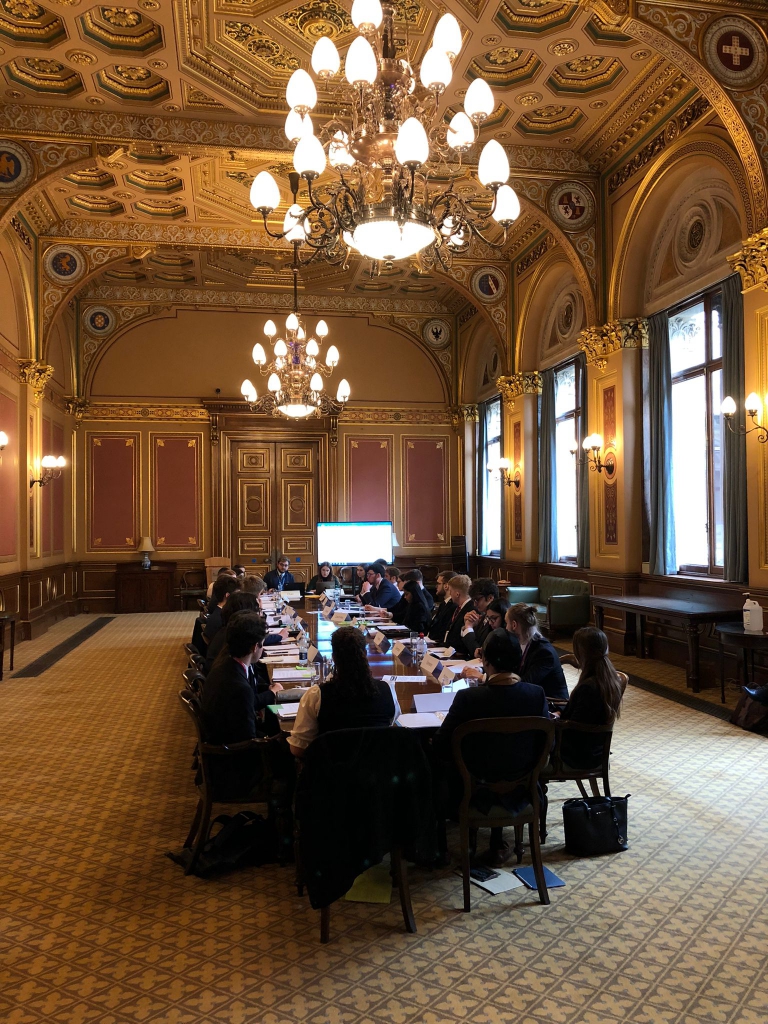
Tobias Cooke: At the NATO model event, we represented the delegations of Albania and Luxembourg across multiple committees. I represented Luxembourg in the committee on Civil Emergency Planning. In the event, we were tasked with drafting, amending, and debating plans on how to deal with an increase in seismic activity in the Mediterranean, as well as in the Atlantic, to decide how to appropriately allocate NATO resources. We gained valuable experience in public speaking as well as learning the jargon of the felid that many of us wish to enter; additionally, seeing the inside of the foreign office was inspiring and a reminder of what we can achieve through our studies.
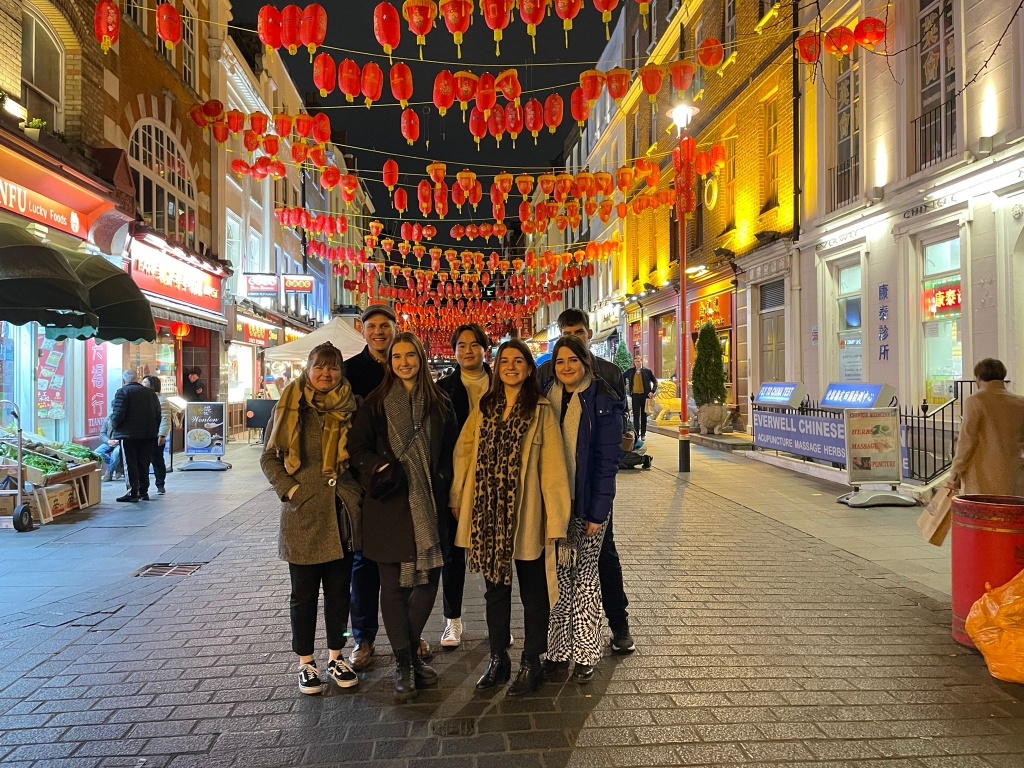
Petra Pusztai: Thanks to my professor and course director, Dr. Felix Rösch, I had the opportunity to take part in the annual BISA Model NATO event at the Foreign Commonwealth and Development Office in London. As the delegate of Albania on the Civil Emergency Planning Committee I had the chance to gain a deeper understanding on the operational procedures of NATO in addition to the many challenges global decision-makers face these days. Several countries – including Albania – were hit by a series of natural disasters such as earthquakes, thus we were tasked to put our respective countries’ interest first whilst liaising with other states to get the necessary help we needed. It was an extremely useful experience as I had the chance to meet and network with other students from 15 different universities in the UK whilst improving my public speaking and negotiation skills. As a student of international relations, my degree is very much research-based which includes writing a series of essays and reports, hence why this event was a great opportunity to put my knowledge into practice. It enriched my university experience both on an academic and social level and I would recommend it to everyone to try.

winners of the 2022 Cecil Angel Cup. 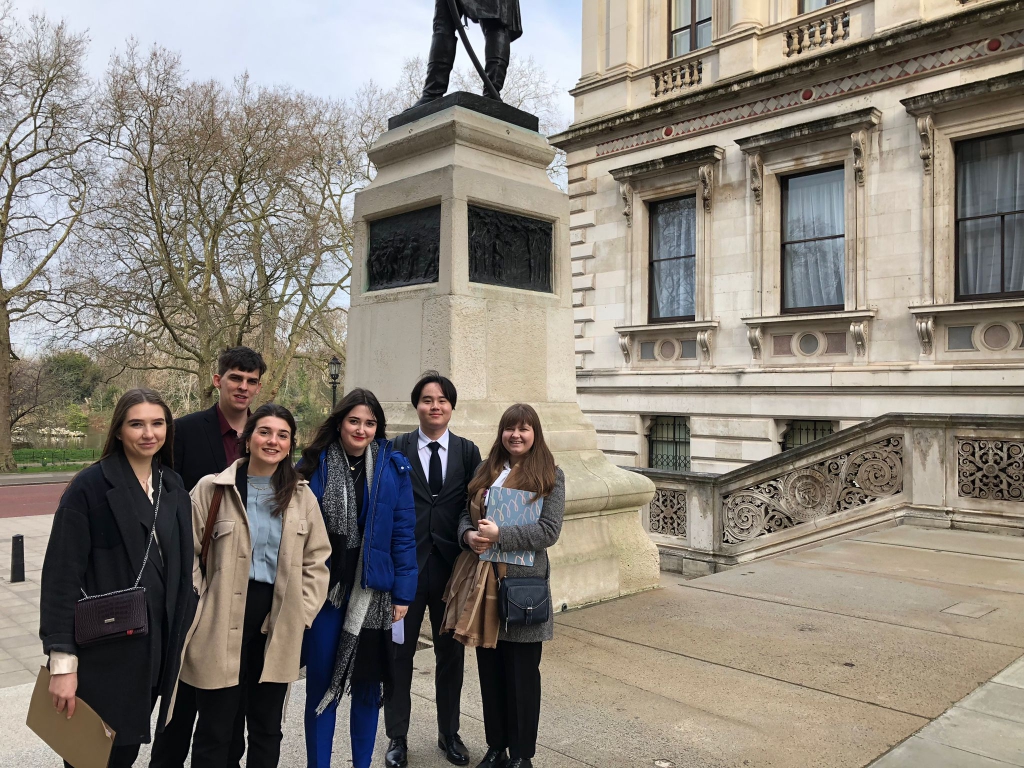
Outside the FCDO 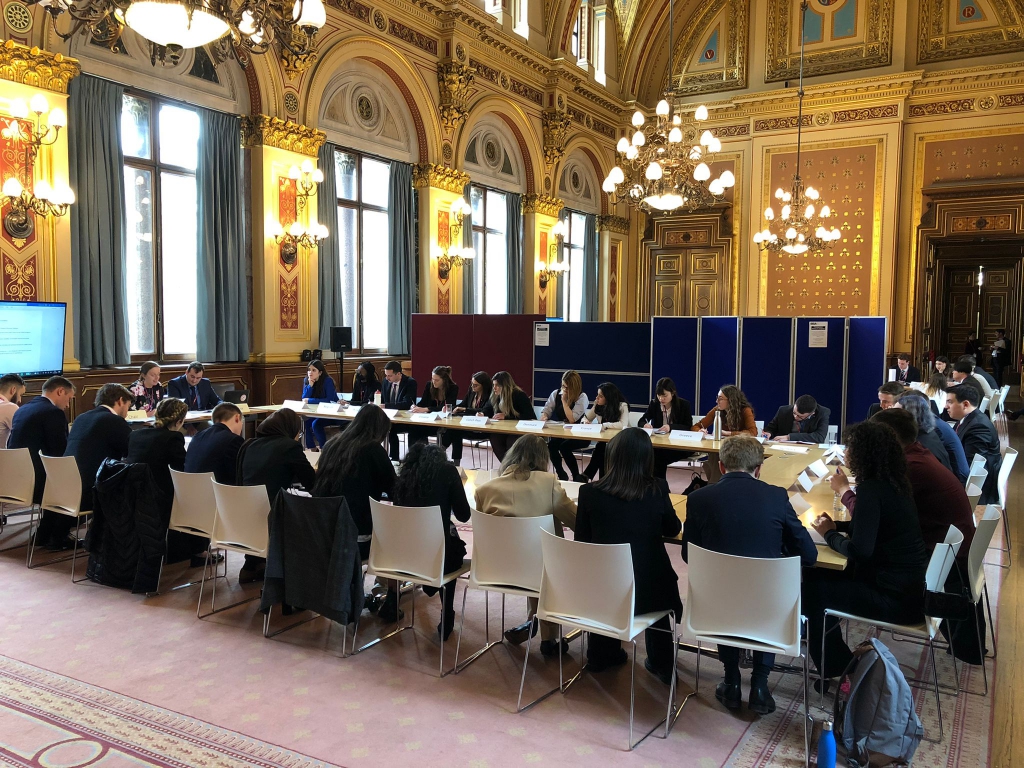
in session 
China Town for dinner 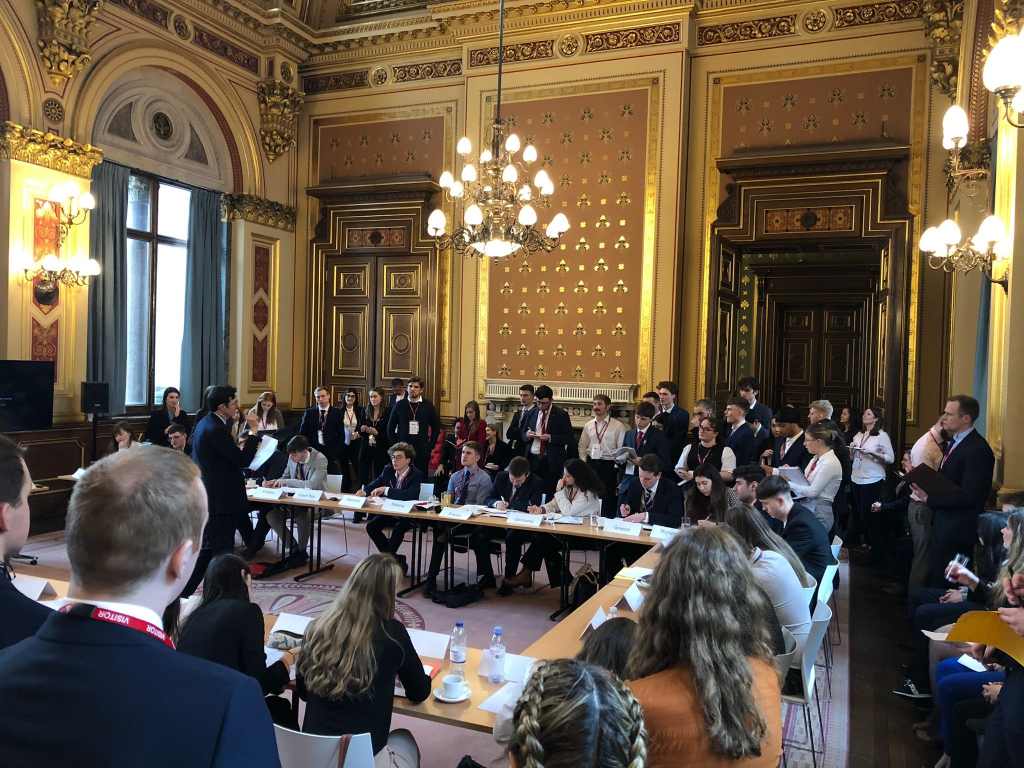
in session 
The Military Committee meeting at the FCDO’s Locarno Room. 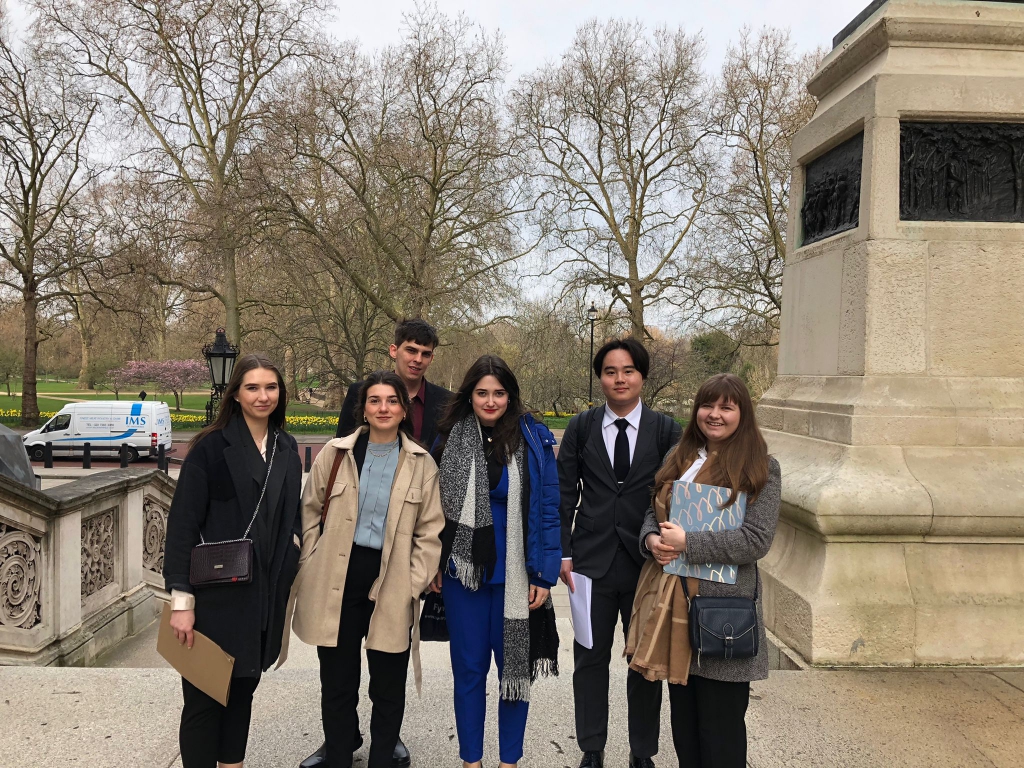
Our Model NATO team 
The North Atlantic Council in session at the FCDO